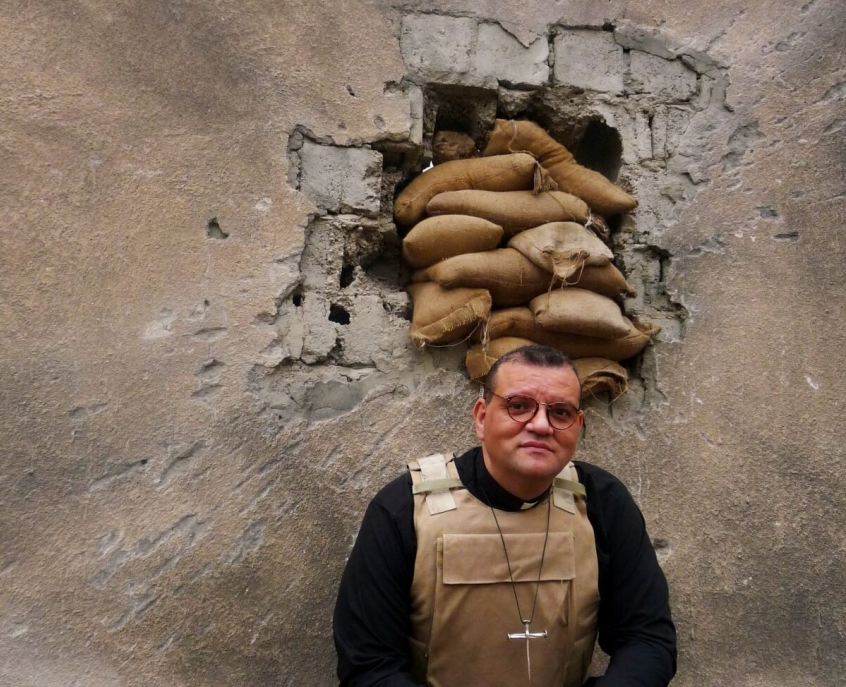
Canon Andrew White, known as the 'Vicar of Baghdad', has defended his actions after the Charity Commission accused him of serious misconduct while acting as a trustee for the Foundation for Relief and Reconciliation in the Middle East (FRRME).
The Commission investigated White after FRRME reported that he may have, in a personal capacity, transferred $17,500 gathered at a fundraising event for the charity's US branch to terrorist organisation Islamic State (IS) in a bid to secure the release of two hostages. The Commission report said that this suspicion was "later not substantiated".
"The commission had serious regulatory concerns in respect of Trustee A's role and conduct within the charity, and considered that there was evidence to suggest that they used their position within the charity to solicit donations to fund the payment, in a personal capacity, of the release of hostages from IS, a proscribed terrorist organisation," the report said.
White was suspended as a trustee of FRRME by the Commission following the launch of its inquiry and he later resigned.
The inquiry triggered a police investigation into terrorist financing and while he was interviewed under caution, he was later informed that no further action would be taken against him.
However, the inquiry concluded that documents suggested Canon White, identified only as "Trustee A" in the report, intended to pay funds to IS.
"The Commission has not identified any evidence of charitable funds being used to secure the release of hostages held by IS," the report said.
"Despite this, the inquiry identified a number of documents written by Trustee A that the Commission considers indicate Trustee A's intent to pay funds – either directly or indirectly – to IS."
These include an email sent on June 6, 2016, in which White, according to the Commission report, wrote that "all of these donations were used specifically for the issue of buying back the women who had been taken as sex slaves by ISIS. This money we were specifically told it could not go through the [charity] and we did not want to do it via [the foreign organisation]..."
Then, in an undated letter from Trustee A to the charity's then trustees, he stated, "...I did not want to take money from [the foreign organisation] so I gave the money to [Person 1] myself from the money I had been given in the US. I have been told specifically that no money given to deal with the sex slaves could go through the [charity], so I dealt with the issue myself."
The Commission concluded that "on the balance of probabilities it appeared that Trustee A intended to secure the release of individuals captured by IS.
"Despite Trustee A's intent, [the Commission] has not seen any evidence that this occurred, or that if it did, it was financed with charitable funds," the Commission said, adding that "as a result of Trustee A's conduct, the charity's work and reputation was put at risk during the subsequent investigations that took place".
The Commission report further said that only 5% of expenses on White's charity credit card could be supported by evidence.
Canon White denied ever intending to make payments to the Islamic State and claimed that he only provided beds and clothes to a foreign group that houses former female hostages.
He told the Press Association that his actions were "highly appropriate for a religious leader living in a war zone".
He said: "I transferred no money to Islamic State... We gave no money to any terrorist organisation and would never do that."
He added: "We gave no money, it was literally just food and clothes. It was as simple as that."
The Commission noted that some of White's conduct could have been related to his ill health - he suffers from multiple sclerosis.
He told the PA: "It all came about from an email I wrote on a day when I had had very serious treatment in the Middle East, I had a stem cell transplant that day and I don't think anything I said was very logical."













